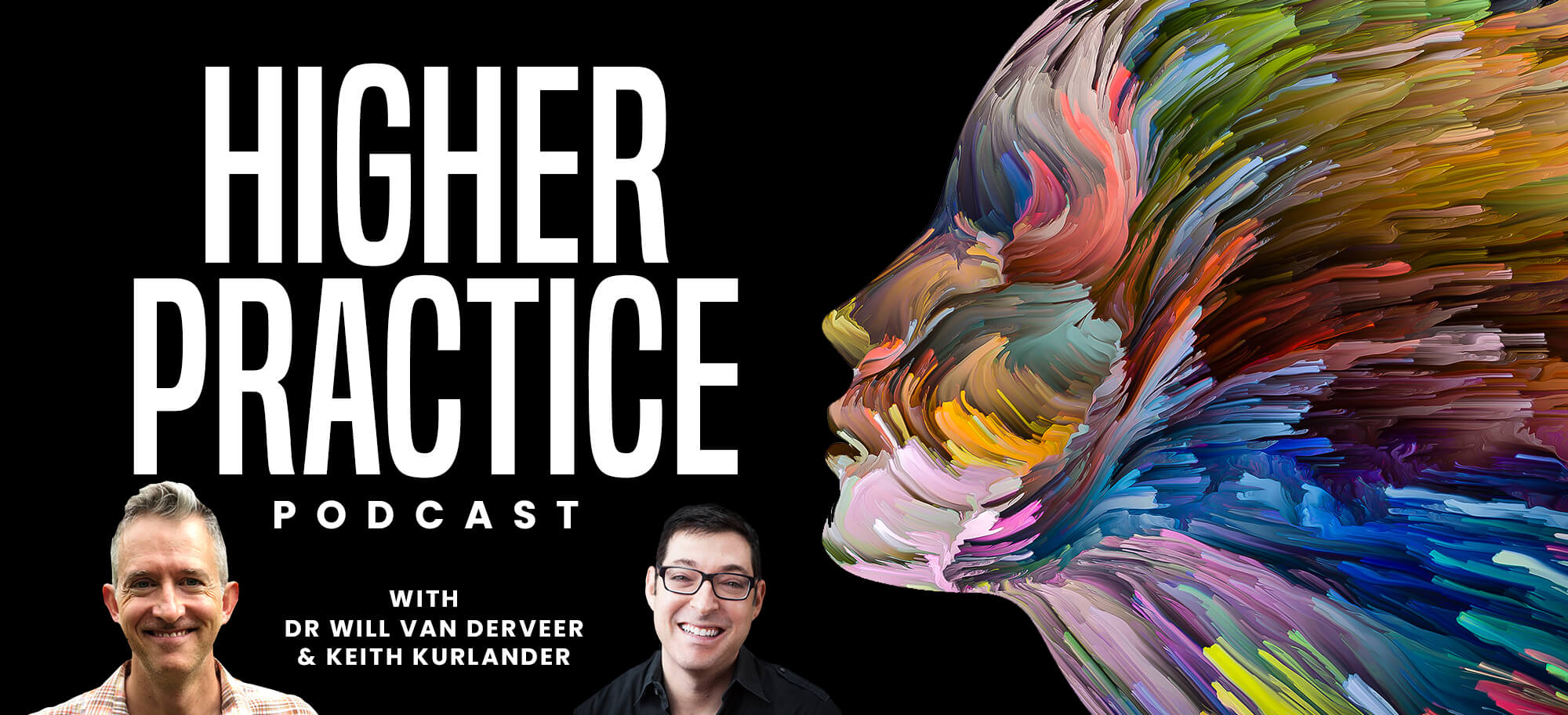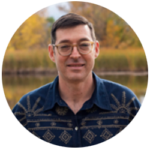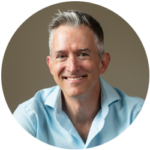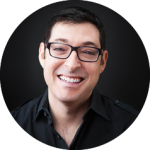Episode 145

Keith Kurlander, MA, LPC
Dr. Will Van Derveer
What exactly is a mystical experience, and how do psychedelics play a role in unlocking these profound states of consciousness? In this episode, we dive deep into the nature of mystical experiences, exploring whether they are real, imagined, or something in between. Through personal stories and thoughtful analysis, we examine how these extraordinary states arise—spontaneously, through meditation, or facilitated by psychedelics—and what they might reveal about the nature of reality.
We also explore the complexities of these experiences, from encounters with entities and synchronicities to navigating challenging psychological terrain. Mystical experiences can be transformative, but they can also lead to spiritual emergencies—intense moments when these states overwhelm an individual’s ability to cope and integrate. We discuss the potential for ego fragmentation, its terrifying yet growth-promoting aspects, and how such moments can lead to greater openness and humility.
This episode offers a balanced look at the opportunities and risks of working with non-ordinary states of consciousness, bridging Western psychology with shamanic traditions. We highlight the importance of seeking support, maintaining hope, and finding pathways to healing during integration. Whether you’re curious about psychedelics or the mystical, this conversation invites you to consider these powerful experiences within a therapeutic lens.
Episode 144

Keith Kurlander, MA, LPC
Dr. Will Van Derveer
What if our current understanding of mental health is merely a brief moment in the vast history of human knowledge? In this episode, we explore the complex evolution of diagnoses and their impacts on society.
We explain how the introduction of the Diagnostic and Statistical Manual of Mental Disorders has dramatically shifted the way we talk about and understand mental health. We examine the shared language that diagnosis creates and dissect the reductionist thinking that can come out of relying on diagnosis. We unpack our culture’s reliance on prescription medication without providing the education or support needed to resolve underlying issues. We also emphasize the need to move beyond the binary thinking of “mentally ill” versus “mentally well,” challenging the notion of “normal” versus “abnormal” psychology.
Ultimately, our discussion underscores the need for empathy and a nuanced understanding of mental health, acknowledging that everyone experiences fluctuating mental states and that a growth mindset is key to wellness. The reality is that this is just one transitory moment in the history of how humans conceptualize and treat mental health challenges.
Episode 143

Keith Kurlander, MA, LPC
Dr. Will Van Derveer
As parents, one of our primary goals is to raise children who are self-assured, adaptable, and equipped to navigate the challenges of adulthood– but striking the right balance between support and challenge is no easy feat. In this episode, we explore this delicate equilibrium of parenthood, sharing our personal experiences at different stages of the journey.
We discuss how to cultivate resilience in kids, noting that children need a mix of comfort and adversity to develop essential life skills. Our conversation underscores the value of honest self-assessment by parents, community feedback, and open communication with children to better understand and address their evolving needs. We emphasize the importance of repairing ruptures in parent-child relationships to build emotional intelligence. We also consider how to set appropriate boundaries, examining the phenomenon of parental over-protection and shielding children from the growth opportunities that come with struggle. As the world rapidly evolves for the next generation, we open dialogue about preparing children for the uncertainties ahead.
Maintaining self-awareness is an essential part of the parenting process. Ultimately, asking tough questions – “How is my kid really doing?” “How am I doing as a parent?” – can be daunting, but we believe these introspective pauses are essential for growth.
Episode 142

Keith Kurlander, MA, LPC
Dr. Will Van Derveer
The rise of artificial intelligence (AI) provokes both excitement and fear. Given its recent rapid growth, we believe it is important to be well-informed about AI’s role in society and mental health. In today’s episode, we assess the evolution of technology and its profound impact on our well-being. Our conversation unpacks how AI influences not only individual habits but also cultural norms.
We discuss the concept of attention sovereignty and express our concerns about social media and smartphones, particularly among younger demographics. Looking to the future, we explain how AI applications might exploit our attention and dopamine systems, leading to addictive behaviors and a reduced capacity for emotional regulation. If we are not mindful, the hijacking of our attention systems can erode the natural resilience built through human connection and real-life challenges. We address the need for educational initiatives to manage attention amid this overwhelming digital stimulation, advocating for intentional technology use to mitigate distractions and foster emotional regulation.
We also explore the promise of AI in revolutionizing mental health care and medicine, noting its emerging potential in areas such as diagnostics, personalized psychological support, and AI-enhanced therapy. As AI becomes more and more integrated into our lives, we emphasize the importance of pausing, reflecting, and recalibrating our focus so that we do not become overly dependent on AI interactions. This episode serves as a powerful reminder to remain self-aware about how we let technology shape our futures.
Episode 141

Keith Kurlander, MA, LPC
Dr. Will Van Derveer
With such a fast-evolving landscape in psychedelics, it’s essential to stay up-to-date on all the changes. In this episode, we discuss significant developments in legal acceptance, such as Dr. Joe Tafur’s recent victory in Arizona for the use of Ayahuasca as a religious sacrament, alongside the União do Vegetal’s (UDV) landmark Supreme Court case nearly two decades ago. These legal milestones are part of the broader shift in the United States towards the decriminalization and legalization of psychedelics, with states like Oregon and Colorado leading the way by passing laws that establish regulated frameworks for psilocybin services.
We also delve into the nuances of psychedelic use, highlighting the distinct differences between therapeutic sessions, traditional ceremonies, and recreational experiences. We will discuss the importance of set and setting and having the correct type of support, particularly for first-time users, to reduce potential risks and enhance the healing potential of psychedelics.
We will also share some personal stories to illustrate how even challenging or uncomfortable experiences in therapeutic settings can lead to profound personal transformation. From setbacks in the 1980s, when MDMA was designated as a Schedule I substance, to the revitalization of studies in the 2000s by organizations like MAPS, the episode traces the path leading to today’s expanding acceptance and use of psychedelics for mental health and healing.
Episode 140

Keith Kurlander, MA, LPC
Dr. Will Van Derveer
This episode delves into the pitfalls of wellness culture and spiritual seeking, focusing on how to avoid counterproductive efforts along the way. We begin by sharing personal updates from the past 1.5 years since the podcast paused. As the conversation unfolds, we critically examine the tension between the pursuit of wellness and the limitations of the ego in that pursuit. Topics such as rigid beliefs and the obsession with achieving perfect health or growth are explored, highlighting how these can lead to burnout, anxiety, and self-judgment. We offer an alternative approach by emphasizing wholeness over perfection, challenging popular narratives that equate happiness with flawlessness.
In the latter half, we discuss spiritual maturity, emphasizing the importance of humor and humility as key characteristics of growth. Rather than focusing on eliminating suffering, we explore the role that suffering plays in the path to wellness, recognizing it as a natural part of life. This conversation is a reminder to maintain balance and resilience, embracing life’s inevitable ups and downs.
Overall, the conversation encourages people to be mindful of polarized thinking, which can lead us astray, and to adopt a more holistic approach to growth and well-being.
Episode 139

Keith Kurlander, MA, LPC
Dr. Will Van Derveer
Psychedelic therapy has proven to be one of the biggest breakthrough treatments in the mental health industry, especially for individuals with treatment-resistant conditions. Although the demand will continue to increase over the next few years, there won’t be enough providers to meet that demand.
Listen in as we discuss the current status of psychedelic therapy including Ketamine, MDMA & Psilocybin, and why now is a great time to get trained as a psychedelic-assisted therapy provider and understand the business of psychedelic therapy.
Episode 138

Sara Gottfried, MD
In celebration of Women’s History Month, we’re re-releasing one of our most popular podcast episodes featuring women’s health expert and New York Times Bestselling author, Dr. Sara Gottfried. In this episode, Dr. Gottfried talks about the unique challenges women face at different stages in life and how those challenges can often impact their mental and physical health. She’ll also share how women can be empowered in their health by learning more about the connection between their bodies and brains.

















